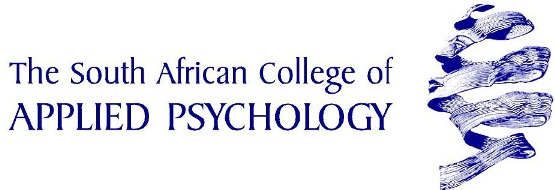Pre-requisite: Counselling Skills
Module Purpose:
The purpose of this module is to provide a conceptual framework together with the application of specific counselling skills and competencies for working with couples and families in a counselling role. The module builds upon the knowledge and skills acquired in previous counselling modules and isolate the knowledge, skills and competencies for counselling couples and families. Students are expected to integrate skills already acquired with the particular demands of working with couples and families within the counselling role.
Module Content:
The content of this module equips students with a foundational understanding of the knowledge and skills required for effective family and relationship counselling. Students develop an awareness of the similarities and differences between individual, relationship and family counselling; they learn to identify the different theoretical approaches associated with this form of counselling and to apply, assess and evaluate the effectiveness of family and relationship counselling.
- Comparisons between individual, relationship and family counselling: key features of: individual counselling, couple counselling, family counselling similarities and differences between approaches, gender, social and cultural issues
- Approaches to family and relationship counselling: structural system approach, strategic/communication systems approach, Bowenian approach, existential/humanistic approach, behavioural approach, psychodynamic approach, differences between counselling and mediation
- Using the Structural/Strategic Systems approach: genograms, presenting problems and family structure, lifecycle development and family problems tracking circularity and repetitive patterns of interaction
- Recognising common presenting issues for relationship and family counselling: mis-communication, hierarchy imbalances, family lifecycle transition difficulties, gender issues, boundary issues in the system and sub-systems
- Conducting a couples interview: engaging with individual and their relationship, identifying problem areas, formulating counselling hypothesis, remaining impartial, reaching agreement on problem/issue, selecting counselling strategies, assessing outcomes
- Conducting a family counselling interview: engaging the individuals and the system, identifying the problem in terms of individuals, system and sub-system, identifying underlying problems, formulating hypotheses, determining the sub-systems needing to be addressed, selecting strategies/interventions, strategies for assessing outcomes
- Common problems for couples and families: work-related stress, retrenchment/unemployment/re-training, serious accidents and illness, change of family structure, family dissolution – separations and divorce, re-focussing couples and families, substance abuse, domestic violence, sexual abuse
- Assessing effectiveness of counselling: assessing client(s) satisfaction, assessing changes in patterns of behaving and interacting, monitoring changes, making appropriate referrals, terminating the counselling relationship.
Learning Outcomes:
On completion the learner will be able to:
- Describe and explain the similarities and differences between individual, relationship and family counselling
- Identify the primary theoretical approaches to family and relationship counselling
- Apply Structural and Strategy Systems Theory to family and relationship counselling
- Recognise the common issues presented in relationship and family counselling as distinct from individual counselling
- Conduct an interview with a family
- Identify common problems for couples and families
- Assess the effectiveness of relationship and family counselling


No comments:
Post a Comment
Note: Only a member of this blog may post a comment.